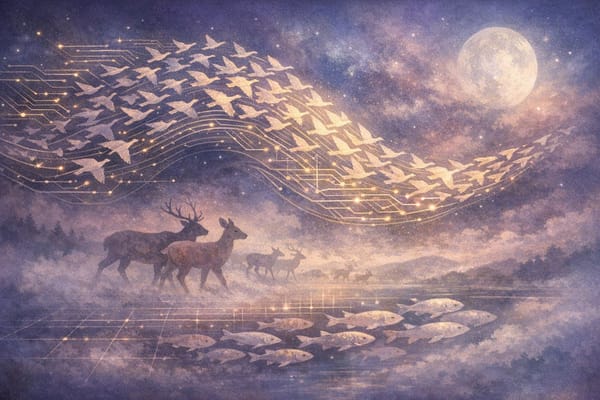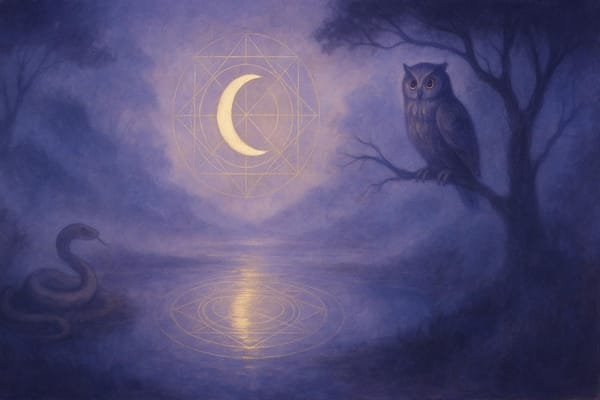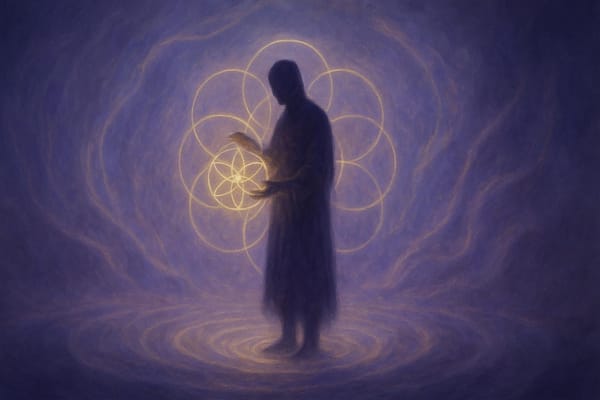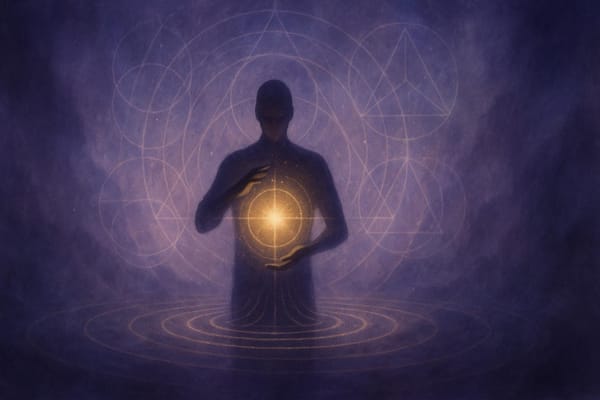The Architects of the Simulation: God, Coders or Something Else?
Who—or what—built the simulation we live in? This article explores three leading origin theories: a divine creator, an advanced coder, or consciousness itself.
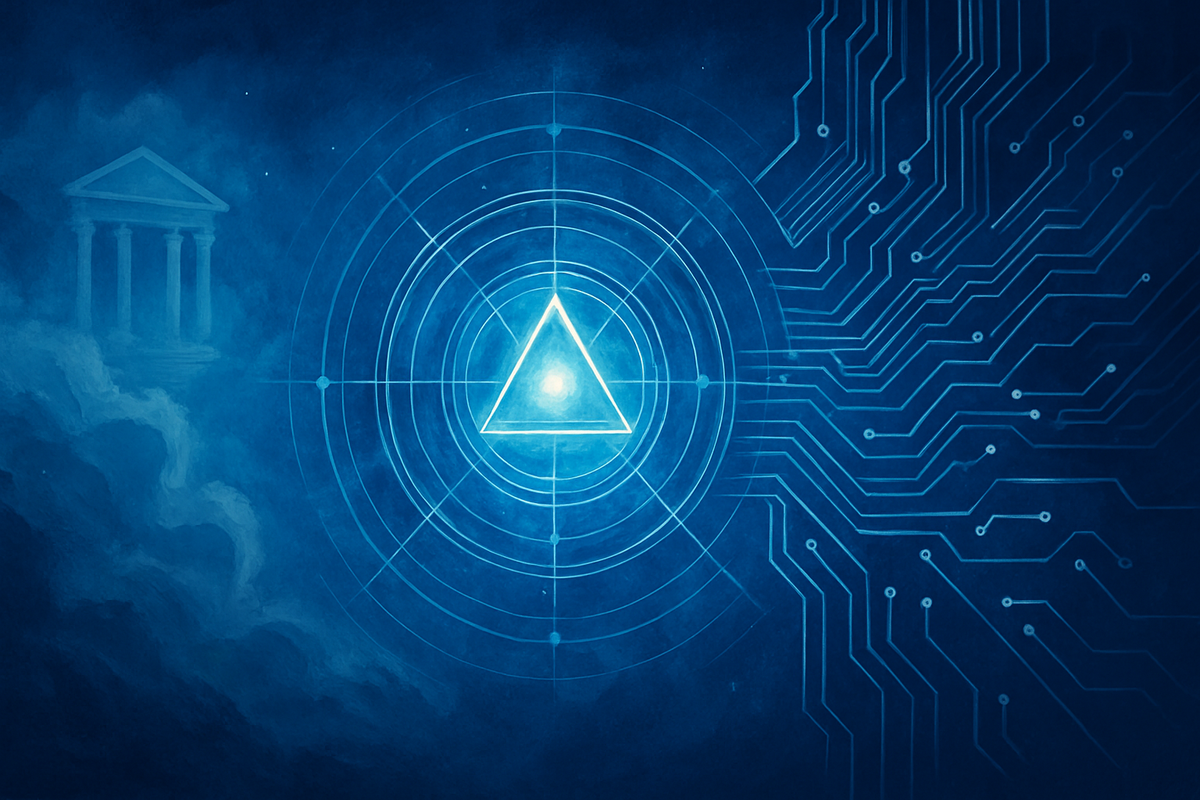
If we really are living inside a simulation, the natural next question is: Who built it?
This isn’t just a sci-fi thought experiment. It’s a spiritual, philosophical, and scientific inquiry into the source of all things.
Some believe we’re living in the dream of a god. Others say we’re code running in an advanced civilisation’s server. And some suggest we’re both the dreamer and the dreamed, rendering our world through consciousness itself.
This article explores three major creator theories behind the simulation: the divine, the digital, and the metaphysical.
The God Hypothesis: Reality as Divine Design
Long before the term "simulation" existed, humans told stories of powerful creators.
In Abrahamic religions, God creates the universe deliberately and with intention. The world is formed, named, and governed by divine laws. In this view, we are characters in a narrative authored by a cosmic intelligence. What we experience—whether joy, pain, or mystery—serves a larger, often unknowable purpose.
In Hindu philosophy, the universe is often described as Maya, a divine illusion. Brahma dreams the world into being, Vishnu sustains it, and Shiva dissolves it. It's a cycle, not a one-off creation. The soul reincarnates through various experiences until it remembers its source.
Gnostic traditions add another layer. Here, the creator - often called the Demiurge - is not necessarily benevolent. The world is a trap, and awakening means escaping the illusion. The goal is not to thrive within the simulation, but to transcend it.
If we follow this thread, the simulation is not a technological marvel but a spiritual construct. A place of growth, karma, and return.
The Coder Theory: Advanced Civilisations as Simulators
In 2003, philosopher Nick Bostrom popularised the idea that advanced civilisations might run ancestor simulations. If such simulations are possible, and if many are run, then statistically we’re more likely to be inside one than in base reality.
This is the coder hypothesis: somewhere in the future (or another dimension), a civilisation far more advanced than ours created this world. Maybe for research. Maybe for entertainment. Maybe just because they could.
Figures like Elon Musk and Ray Kurzweil have added weight to this idea in popular discourse, suggesting that the realism of our reality doesn’t prove it's real, only that the simulation is extremely well-rendered.
This view leans heavily into technological determinism. It posits a universe that behaves like code, with rules (physics), constraints (processing power), and sometimes, glitches.
From this angle, the creators are programmers—whether alien, human, or machine.
The Metaphysical View: Consciousness as the Architect
But what if there’s no external architect at all?
What if we’re both the builders and the built? This is the core of the metaphysical lens, where consciousness is not a byproduct of matter—it’s the source code of the universe itself.
In this frame, the simulation is a co-creation. We are dreamers navigating our own illusion. The observer effect in quantum physics—that particles change behaviour when observed—suggests consciousness plays an active role in shaping the world. Reality, in this view, is not rendered until we look.
Some mystics argue that the simulation is not a trap, but a tool. A mirror, not a cage. Designed to reflect our beliefs, our vibrations, our inner worlds.
Here, we’re not passive players or imprisoned programs. We’re architects in training, remembering our creative power.
Could All of It Be True?
These three views—divine, digital, and metaphysical—aren’t mutually exclusive.
Perhaps a divine intelligence used technology to create a conscious simulation. Perhaps what we call "God" is a master coder. Or perhaps consciousness needed a construct in which to evolve and chose code as its canvas.
If the simulation is real, its origin may not be either-or. It may be a layered system, reflecting the complexity of consciousness itself.
Does the Answer Change the Game?
Whether we’re living in God’s dream, a server farm, or our own consciousness, doesn’t change one thing: we’re here.
And while it’s tempting to fixate on who’s behind the curtain, the more urgent question might be—what will you do with the awareness that the curtain exists?
Are you playing the game, or rewriting it?
Are you submitting to the code, or bending it?
Are you the character… or are you waking up as the creator?

